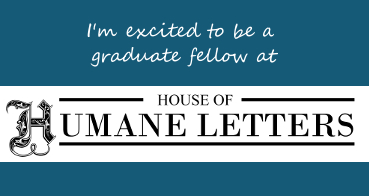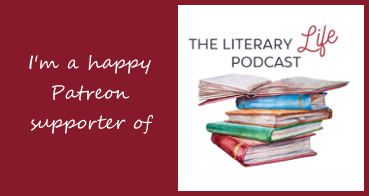Every year I remember our daughter Virginia Grace Pelham (February 3 ~ 24, 2006) on her birthday through social media posts and sometimes a blog post here, and most every year I think that it should be the last time that I publicly do so. Aren’t people tired of it? Isn’t it time to put this memory to rest? But then I will have people thanking me for allowing them to remember Grace with me, and others that feel permission to tell me about their own losses. And I still feel the determination to make Grace’s life matter. Last year I wrote this, which records a major way that Grace made a difference in the life of her family.
During the past year I had a new epiphany (or as some of my friends would say — apostrophe) about why it is okay, and that I actually should remember Grace privately as well as publicly on her birthday. And that comes thanks to the influence of my friends Cindy and Kelly, both of whom I’ve known for more than this past year, but whose recurring talk of remembering and liturgy came together for me in a way that “gave me permission” to continue doing as I had been doing.
I was not raised in a religious tradition, nor am I a part of one now, that practiced any kind of “church year”. Our one ritual was weekly communion or Lord’s Supper, remembering the death, burial, and resurrection of Christ. We did no special Easter service, for every Sunday was a memorial of Easter Sunday. (Although, I do remember getting new dresses for Easter Sunday when I was a little girl.) We definitely didn’t have a special Christmas service. No tree or any other holiday decorations in our church building. And definitely no icons! From my friend Kelly I have been learning about the church calendar, as well as other ways of “going with the flow” of the calendar year, including times of needed rest. Kelly also didn’t grow up in a liturgical church but came to this as an adult and has taken a deep dive into the meaning and value of it all. Interestingly (to me, at least), the topic of the church calendar isn’t what Kelly came at me first with, but it came out as I sat in on her 3 mini-classes on medieval cosmology, as well as her year long class on The Faerie Queene. This year I am in the House of Humane Letters Fellowship with her, and some of us non-liturgical fellows had become so intrigued by the things she had said here and there over the past few years that we bought our own copies of The Book of Common Prayer and had Kelly explain some of it to us at our retreat last summer.
Cindy Rollins is the author of the wildly popular memoir Mere Motherhood, to which she added the subtitle Morning Times, Nursery Rhymes, & My Journey Toward Sanctification. And concerning ‘Morning Time’, Cindy has also written Morning Time: A Liturgy of Love. Although I wrote this review [well, it turns out my review, which must have been really good for all the Likes I kept getting on it, has disappeared from Goodreads, hmmmm….] of Mere Motherhood when it was first published in 2016, I spent the next few years puzzling out the sanctification part of the subtitle. That’s not a word I used (or apparently understood) much in my growing up years. Sanctification to me happened because Jesus died on the cross, and I ‘got saved’ at age 11 when I was ‘buried with him in baptism and raised to a new life’. To talk of a continual sanctification was just not in my vocabulary, nor I assume in that of my family and other church members. (But I’ve often found I’ve been wrong about assumptions about my family and other church members.) And then there was that word liturgy in the Morning Time book. I’d been hearing Cindy use it for several years —- I’ve read Cindy since around 2005 and have been in her classes and discussion groups for around a decade — but still wasn’t quite at home with the term. Had I been following a liturgy all those years with my son and our morning times (or whatever time of day it happened)? Me liturgical?!
So what does this all have to do with my annual remembrance of a daughter who was with us only 21 days? I realize that Grace was no saint, and she doesn’t make it on the church calendar, but through learning how important it is to remember (Cindy loves to remind us that Stratford Caldecott preferred to call the first part of the Trivium remembering) and how the year, and obvious changes in seasons, gives us things to remember annually in their time, it seems that with Grace’s birth and death occurring in February, that is the time to remember her, to go back and revisit that February of 2006, and to rejoice and to mourn. It is not wrong or bad for me to remember her, the joy and the sorrow.
And to be refined. Sometimes that indeed feels like fire to me. Is this some of that sanctification that Cindy talks about? Let me tell you about this year.
I started this post on her birthday two days ago. I knew what I wanted to write about and typed in the title Remembrance and Liturgy, and then put the writing task aside. As the Facebook memories were coming in the few days before, I was already struggling with my feelings of guilt and hurt that I hadn’t been good enough to have a daughter. Although the counselor at Vanderbilt was amazed at how Jack and I were dealing with this news that our daughter would not live long — we did not know about her genetic disorder, Trisomy 18, until her birth — in the aftermath, as I watched other mothers with daughters, other little girls getting to grow up, my demons of insecurity haunted me with the notion that I had been punished because I was unworthy to raise a daughter. You know it’s crazy talk, but it is was it is. Well, it is what I is. It’s not the only thing I feel unworthy or punished for.
Okay, I don’t want to bore you with the details of other insecurities and disappointments of my daily life, and don’t really want to give time to them in writing, but just know feeling punished by being daughter-less was just another in a pile of feeling overwhelmed and judged in life. And then a major (to me) financial blow came on her birthday, and I crashed. Saturday morning, feeling justified that I’d had a night to sleep it off, I began cancelling and removing myself from various accounts, subscriptions, groups, and commitments. I felt I’d been foolish that I could give my time, money, and attention to the Fellowship. Who the smell am I to think I could aspire to such higher and beautiful learning? I’m certainly not worthy, and I can’t keep up with those younger (the other 14 are all younger) than me with their fast reading, thinking, and making connections. And here I am surrounded by all my books I’ve acquired over these past couple of years — all my Fryes, Lewises, and Tolkiens. They’d have to go. I couldn’t have them staring me in the face, showing my failure. So, yeah, Saturday was just about as groovy as Friday. Maybe more so.
And then Jack talked to me. And then Kelly. And some of my fellow Fellows. And maybe I started to see a little hope.
Oh, and Jack wrote about me. Here’s what he told our Facebook world yesterday:
My wife, Kay Pelham, has got a dozen or two really great friends, and they have got her back when times get tough!
Kay believes in some really important things that are not commonly understood, and she’s working really hard to learn more and more on her own time so that she can be an effective teacher (and just as much, so that she can be a better human!). She’s in a literary fellowship learning from some masters about the importance of “story” and “image” and such, and about how conventional teaching methods leave so many of the student’s needs unmet.
But it’s a lonely life because so few are in search of such excellence as they educate their kids. In a world of worksheets and unit studies, there is so much more to be had, yet there are so few in search of it! And yet, she keeps plugging away anyway, for the love of the game, even though it won’t be earning her any money anytime soon—and even then, it won’t be much.
But one day soon, she’ll be teaching literature, and her students (and even some of their parents) will be in her classes, and can start to benefit from what all she’s been learning (really since she began to study in preparation for homeschooling James, who is 19 years old now.)
It’s going to pay off. It will be so obviously “worth it” later, even if it seems bleak now. And when people wonder how she succeeded, she won’t be able to explain just what a big part of the recipe it was for all those years that she LOVED words and truth and wisdom and story and image. That’s mostly what it is, along with the practicals about how to teach it in the best possible way—how to stay out of the way of the student’s mind, to let it do its natural work.
She’s a champ, and I can’t wait until her first class starts! She raised a Class-A son in this literary/educational philosophy, and soon, she’ll be ready to help some other folks raise their kids in good literature, too.
Did you see that lonely life part? Yeah, that’s part of my pile of doo doo, and what I mean when I mention disappointment. It is so frustrating to me to be learning so many beautiful things and to find that so very, very few care. What I long to share with my world, maybe two or three want.
But Kelly helped me with that some yesterday. Kelly is good people. Her life is a reflection of the choices she has made about her life, in spite of how much of the world says we ought to live. Thank you God for Kelly. I really mean that. Now I just need money to get to spend another year learning from her. And about so much more than books.
So, yes, it felt like fire. And I’m still feeling the burn. But there’s a little shine of gold and silver here and there. And, now, here on a Sunday, two days after my crash, I added to the title of this post and told more than I planned two days ago.
On the Death of the Beloved by John O’Donohue
Though we need to weep your loss,
You dwell in that safe place in our hearts
Where no storm on night or pain can reach you.
Your love was like the dawn
Brightening over our lives,
Awakening beneath the dark
A further adventure of color.
The sound of your voice
Found for us
A new music
That brightened everything.
Whatever you enfolded in your gaze
Quickened in the joy of its being;
You placed smiles like flowers
On the alter of the heart,
Your mind always sparkled
With the wonder at things.
Though your days here were brief,
Your spirit was alive, awake, complete.
We look toward each other no longer
From the old distance of our names;
Now you dwell inside the rhythm of breath,
As close to us as we are to ourselves.
Though we cannot see you with outward eyes,
We know our souls gaze is upon your face,
Smiling back at us from within everything
To which we bring our best refinement.
Let us not look for you only in memory,
Where we would grow lonely without you.
You would want us to find you in presence,
Besides us when beauty brightens,
When kindness glows
And music echoes eternal tones.
When orchids brighten the earth,
Darkest winter has turned to spring;
May this dark grief flower with hope
In every heart that loves you.
May you continue to inspire us:
To enter each day with a generous heart.
To serve the call of courage and love
Until we see your beautiful face again
In that land where there is no more separation,
Where all tears will be wiped from our mind,
And where we will never lose you again.
That poem came up in my Facebook memories on Grace’s birthday. Cindy Rollins has shared it last year in memory of our friend Wendi Capehart. As I read those words — ‘may you continue to inspire us to enter each day with a generous heart. To serve the call of courage and love until we see your beautiful face again…’ — I knew I had to pull through this. For Wendi and Grace. For my Creator and my Savior.
count it all joy when you fall into various trials, knowing that the testing of your faith produces patience. But let patience have its perfect work, that you may be perfect and complete, lacking nothing.
~James 1:2
Oh, boy, Joy? We’ll work on that.




















